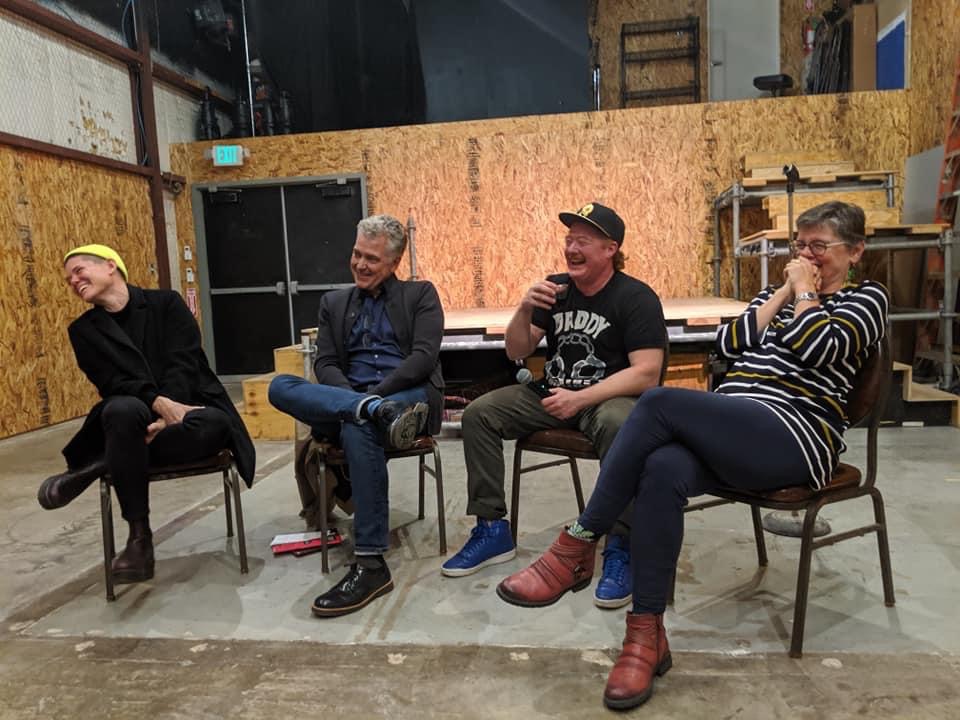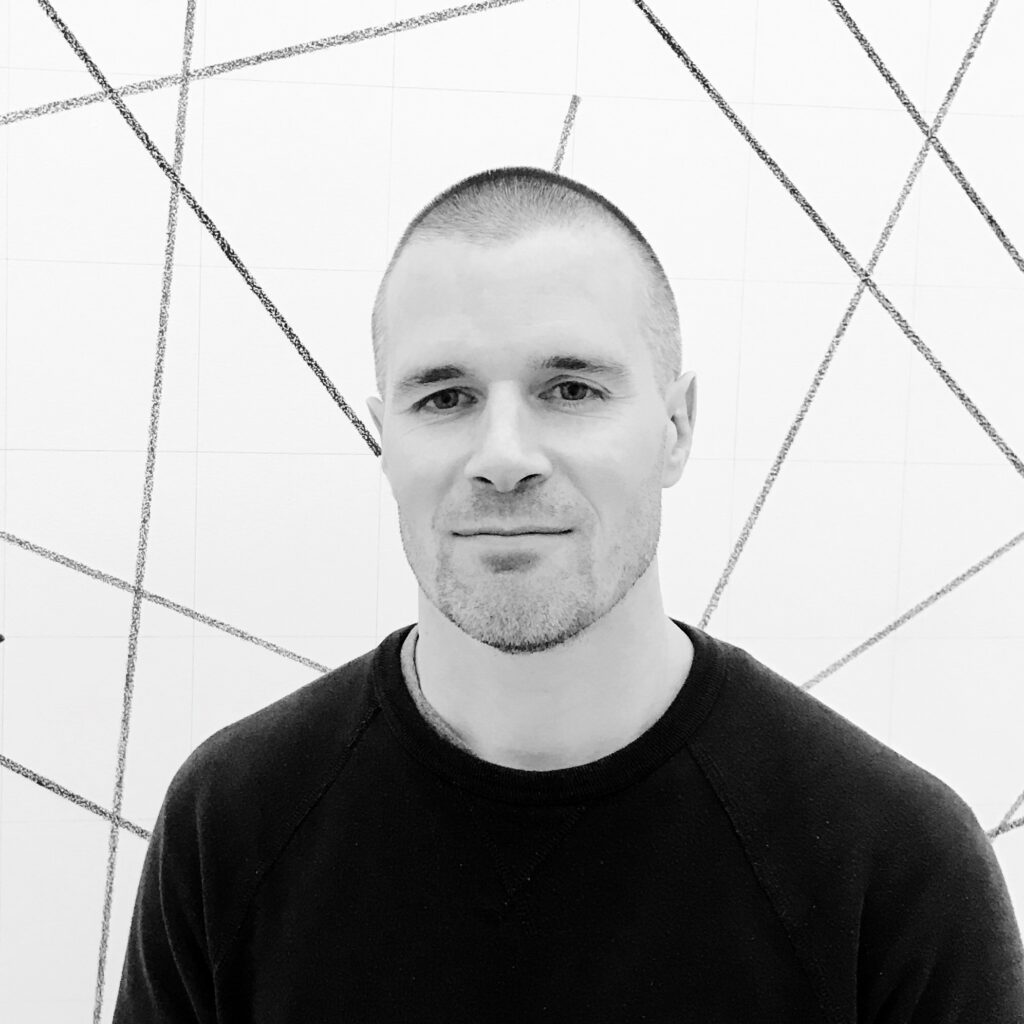by Chad Bennett

Celebrated New York-based actor and performer Becca Blackwell’s one-person show, They, Themself, and Schmerm, was staged for lively crowds gathered at Austin’s intimate Crashbox theater space on November 11 and 12, 2019. The performance was curated by LGBTQ Studies Faculty Affiliate Paul Bonin-Rodriguez, as part of the LGBTQ Studies Queer Camaraderie Series.
The portmanteau pronoun punctuating the show’s title wryly nods to the confusion and discomfort that Blackwell—a trans actor—encounters in everyday interactions with others struggling to figure out their gender: she, he, hrrm . . . schmerm? Beyond its critique of cis-normative gender expectations and their limits, the title condenses the show’s reveling in the surprisingly queer possibilities—schmerm!—that can emerge when awkwardness is allowed to settle in rather than being quickly smoothed over.
Comedy and theater often traffic in the charge of live awkwardnesses, intended and otherwise, and Blackwell’s rollicking performance—equal parts observational stand-up routine about running the everyday gauntlet of gender, frank personal monologue exploring the development and transformations of their gender identity, and experimental audience provocation—was no exception. But for Blackwell, such awkwardness and its disruptions of business as usual are less likely to be resolved with a sharp punchline than pursued as a lingering aesthetic, as when they indulged the blunt pleasures of bathroom humor, but reimagined it through the lens of trans experience (culminating in an uncomfortably funny story about taking their niece to the women’s restroom in a men’s prison), or when they told the audience about being sexually abused as a child, but as a casual, momentary digression rather than a central narrative, at once engaging in and unravelling the awkward discourses of confession or oversharing.
Blackwell’s radical awkwardness culminated near the show’s conclusion, when, in the midst of an ongoing riff on the allure and damage inherent in cultural notions of masculinity, they asked for a man in the audience to volunteer for a moment of shared vulnerability. What might have been, in theory, a predictably cringe-inducing moment of audience embarrassment, became in practice and in the carefully built context of Blackwell’s performance something else altogether. (This is art produced by, as Blackwell at one point hilariously described themself, “a top who cares.”) Taking a seat on their audience member’s lap and sharing a prolonged, mutual gaze, Blackwell became absorbed entirely in the moment, allowing seconds to tick off into minutes as the spectacle of awkward intimacy extended beyond Blackwell and the man whose lap they occupied to the other audience members whose nervous laughter occasionally broke the room’s uneasy silence, and whose eyes sometimes settled into their own intimate, shared looks with those around them. The effect—a live one—is hard to describe. But in this moment, and really throughout They, Themself, and Scherm, Blackwell quietly galvanized their audience into the strange, fleeting, yet transformative intimacy of inhabiting an awkward moment together.
Our tower. This line brought me to a similar expression in another one of Luckett’s other speeches. At a march, Luckett pointed at the tower, drawing hisses from her fellow students. In response, Luckett asserts, “we don’t have to boo it—we just have to take it.” I don’t want it to come across as though Luckett’s presidency was a seamless time of transformation. In looking through the archives, I found article upon article discrediting the experiences of minority students, claiming Luckett and Brown are “crying for handouts,” calling them a “merry band of idiots.” One article claimed an exhaustion at the idea of discussing racism: “so sick and tired of hearing about this racial issue that I could puke.” These sentiments, these blatant expressions of hate, prejudice, and ignorance, are only a portion of that which was published. Incidents of racial prejudice and homophobia persisted throughout Luckett’s time as Student Association president, especially in fraternities through West Campus annual parties such as Roundup. Yet as we fight for a more inclusive university even today, we have to applaud and recognize Luckett for paving the way for future students. She saw the then 88-year old institution of student government, one that had only served students who looked like her for less than half of that time, and chose not to boo it, but to take it.

Chad Bennett is an associate professor of English and the author of Word of Mouth: Gossip and American Poetry (Johns Hopkins University Press, 2018) and Your New Feeling Is the Artifact of a Bygone Era (Sarabande Books, 2020). He is an LGBTQ Studies Faculty Affiliate.
